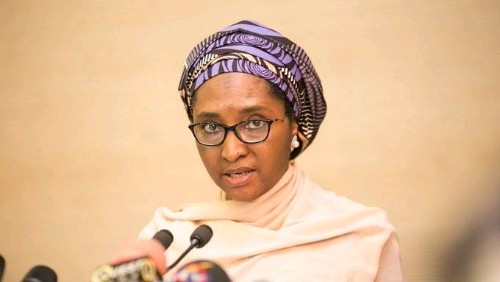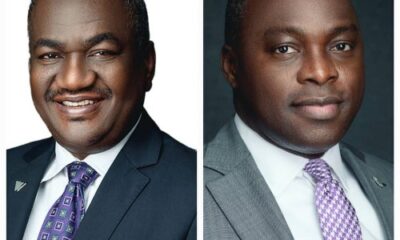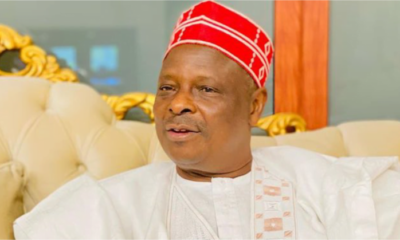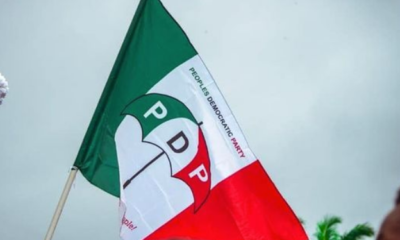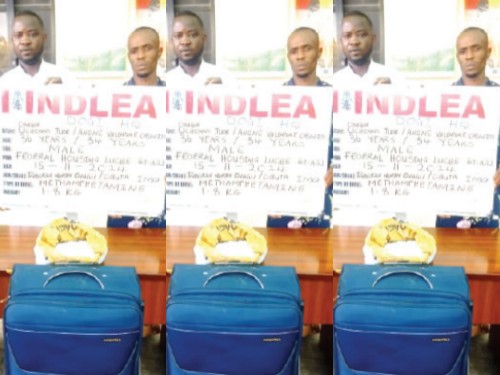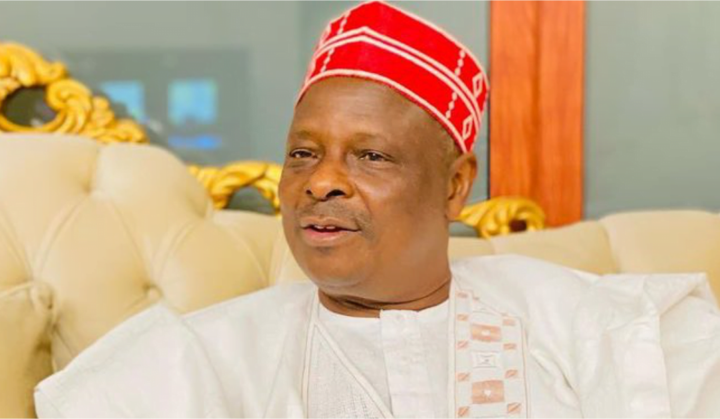• Experts warn Buhari, propose revenue drive
• FG’s recurrent rise 217% to N8tn
The Federal Government exceeded its borrowing by N1.15tn for the period between January and August 2022.
A copy of the public presentation of the 2023 proposed budget by the Minister of Finance, Budget and National Planning, Mrs. Zainab Ahmed, showed that the Federal Government planned to borrow N6.10tn in 2022.
A breakdown shows that the Federal Government planned to get N3.53tn from domestic creditors and N2.57tn from foreign creditors.
According to the document, the Federal Government estimated that it would borrow N4.07tn between January and August 2022.
However, the Federal Government accumulated N5.33tn debt within the period under review, which is N1.15tn higher than the expected N4.07tn planned debt.
A further breakdown showed that the Federal Government borrowed N4.82tn from domestic creditors and N510.21bn from foreign creditors.
The debt from domestic creditors includes the Federal Government’s borrowing from the Central Bank of Nigeria through the Ways and Means Advances.
Ways and Means’s Advances are loan facilities through which the CBN finances the shortfalls in the government’s budget.
Earlier reports had it that the Federal Government borrowed a total of N4.61tn from the Central Bank of Nigeria through Ways and Means Advances between January and August 2022.
This means that majority of the Federal Government’s domestic debt came from its debt to the CBN.
The CBN says on its website that the Federal Government’s borrowing from it through the Ways and Means Advances could have adverse effects on the bank’s monetary policy to the detriment of domestic prices and exchange rates.
“The direct consequence of central banks’ financing of deficits are distortions or surges in monetary base leading to adverse effects on domestic prices and exchange rates i.e macroeconomic instability because of excess liquidity that has been injected into the economy,” it says.
The World Bank had, in November last year, warned the Nigerian government against financing deficits by borrowing from the CBN through the Ways and Means Advances, saying this put fiscal pressures on the country’s expenditures.
Despite warnings from experts and organizations, the Federal Government has kept borrowing from the CBN to fund budget deficits.
Also, the N22.07tn owed to the apex bank by the Federal Government is not part of the country’s total public debt stock, which stood at N42.84tn as of June 2022, according to the Debt Management Office.
Also, earlier reports had it that the country’s debt rose by N30.72tn between July 2015 and June 2022, according to data released by the DMO.
According to the DMO statistics, Nigeria’s total debt as of June 30, 2015, stood at N12.12tn. By June 30, 2022, the figure had risen to N42.84tn, which showed an increase of 253.47 percent. Despite the high increase in debt over the years, the government still plans to borrow N8.4tn in 2023.
Experts have kicked against the Federal Government’s proclivity for debt, which they have described as unsustainable.
An Abuja-based policy think tank, Agora Policy, said Nigeria’s debt was unsustainable and put the country in a perilous situation due to the high cost of debt servicing.
The group advised the government to deepen and diversify sources of revenue, re-calibrate expenditure to spend smartly, and invest efficiently.
A former President of the National Accountants of Nigeria, Dr. Sam Nzekwe, agreed that Nigeria’s debt was unsustainable.
He said, “The debt is huge. If you look at the budget, you will see that a huge sum of money is used to service debts. This is just the debt service charge. We are yet to talk about the principal.”
He also said that instead of focusing on the debt-to-GDP ratio, the focus should be on the debt service-to-revenue ratio. He further noted that the country had a revenue problem.
A development economist, Dr. Aliyu Ilias, criticized the government for its constant reliance on borrowing, which was not healthy for the economy.
He further urged the government to seek better ways of generating revenue rather than persistently borrowing.
However, the finance minister, when she appeared before the House of Representatives Committee on Finance last week, explained that the over-borrowing was a deliberate plan to ensure that money was released early for capital projects.
She said, “We are borrowing faster than what we had prorated. It was a conscious decision to make sure we have funds early enough to release for the implementation of capital projects.”
Meanwhile, the amount budgeted for recurrent expenditures has increased from N2.61tn spent in 2015 to N8.27tn in the proposed 2023 budget, according to data obtained from the Budget Office of the Federation. This shows an increase of N5.66tn or 216.86 percent in six years, fuelling concerns over the rising cost of government overheads amid declining revenue and a weakening economy.
According to The Punch, analysis revealed that recurrent expenditure recorded significant increases each year during the period under the review.
The former Nigerian President, Dr. Goodluck Jonathan, approved a N4.49tn budget for 2015, which included a N2.61tn recurrent expenditure. Capital expenditure was N557bn, while money budgeted for debt service was N953.62bn. There was a fiscal deficit of N1.08tn.
The recurrent expenditure rose slightly by 1.53 percent or N40bn to N2.65tn in 2016, out of a total expenditure of N6.06tn. Capital expenditure was N1.59tn, while money budgeted for debt service was N1.48tn. There was a fiscal deficit of N2.2tn.
In 2017, it rose to N2.99tn, representing an increase of N340bn or 12.83 percent. Out of a total expenditure of N7.44tn, capital expenditure was N2.18tn, while money budgeted for debt service was N1.66tn. There was a fiscal deficit of N2.36tn.
In 2018, recurrent expenditure rose by N520bn or 17.39 percent, raising the total recurrent expenditure to N3.51tn. Out of a total expenditure of N9.12tn, capital expenditure was N2.87tn, while money budgeted for debt service was N2.01tn. There was a fiscal deficit of N1.95tn.
The following year, the recurrent expenditure increased by N540bn or 15.38 percent to N4.05tn. Out of a total expenditure of N8.91tn, capital expenditure was N2.09tn, while money budgeted for debt service was N2.25tn. There was a fiscal deficit of N1.95tn.
The recurrent expenditure was N4.84tn in 2020, out of a total expenditure of N10.59tn. This shows an increase of N790bn or 19.51 percent. Capital expenditure was N2.47tn, while money budgeted for debt service was N2.7tn. There was a fiscal deficit of N2.28tn.
However, the increase in 2020 may be attributed to the inclusion of the new national minimum wage in the budget.
In the 2022 budget, the recurrent expenditure hit N6.91tn, representing an increase of N1.27tn or 22.52 percent. Out of a total expenditure of N17.13tn, capital expenditure was N5.47tn, while money budgeted for debt service was N3.88tn. There was a fiscal deficit of N6.26tn.
President Muhammadu Buhari recently presented the proposed 2023 budget to the National Assembly.
The proposed 2023 budget shows that the proposed recurrent expenditure is N8.27tn, which is an increase of N19.68 percent or 1.36tn from the previous year. Out of a total expenditure of N20.01tn, capital expenditure was N4.93tn, while money budgeted for debt service was N6.65tn. There was a fiscal deficit of N10.7tn.
The 2023 recurrent expenditure represents 41.33 percent of the nation’s entire budget and is the single largest element of the budget. It is also N3.78bn more than the total expenditure for 2015.
From the 2023 recurrent (non-debt) expenditures, personnel costs gulped N4.08tn; pensions, gratuities, and retirees’ benefits took N721.46bn, while overheads cost N443.28bn.
Within the years of the Buhari-led administration, including 2015, a total of N38.82tn has been budgeted for recurrent expenditures. This total exceeds the N20.01tn total budget proposed for the 2023 fiscal year.
Experts have lamented the constant increase in the nation’s cost of governance. In May 2021, the Federal Government, through the Minister of Finance, Zainab Ahmed, had said it was working to reduce the high cost of governance by doing away with unnecessary expenditures, which might include salary cuts for workers.
However, the increase in recurrent expenditures in the 2023 budget suggests the government may have backpedaled on the plan. Economic and financial experts have expressed concerns over what they described as significant increases in government expenditure, saying they were worrisome because a large chunk of government revenue had been allocated to recurrent expenditure instead of capital projects that drove economic growth.
The Registrar and Chief Executive Officer, of the National Institute of Credit Administration, Prof Chris Onalo, has stressed the need for the government to streamline its expenditure in order to manage its debt profile.
He said, “Everybody is concerned about the rising debt profile. And the reason it is going in that direction is because first, our recurrent expenditure is too big. When you borrow money, you don’t borrow to pay salaries. You don’t borrow to finance recurrent expenditures. That is where we have the biggest problem.
“The size of our civil service needs to be trimmed down. Some of the ministries have to be allowed to go. And then, we need a very serious audit of the Federal Government’s workforce. And until we do that, we will not be able to run the civil service system transparently. The government expenditure profile needs to be streamlined very seriously.”
An Associate Professor of Economics at Pan Atlantic University, Dr. Olalekan Aworinde, recently linked the development to rising salaries and the upcoming election.
Credit: The Punch

 BIG STORY5 days ago
BIG STORY5 days ago
 BIG STORY5 days ago
BIG STORY5 days ago
 BIG STORY4 days ago
BIG STORY4 days ago
 BIG STORY4 days ago
BIG STORY4 days ago
 BIG STORY5 days ago
BIG STORY5 days ago
 BIG STORY4 days ago
BIG STORY4 days ago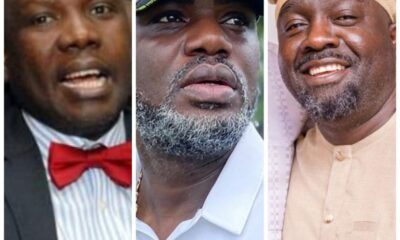
 BIG STORY4 days ago
BIG STORY4 days ago
 BIG STORY4 days ago
BIG STORY4 days ago




